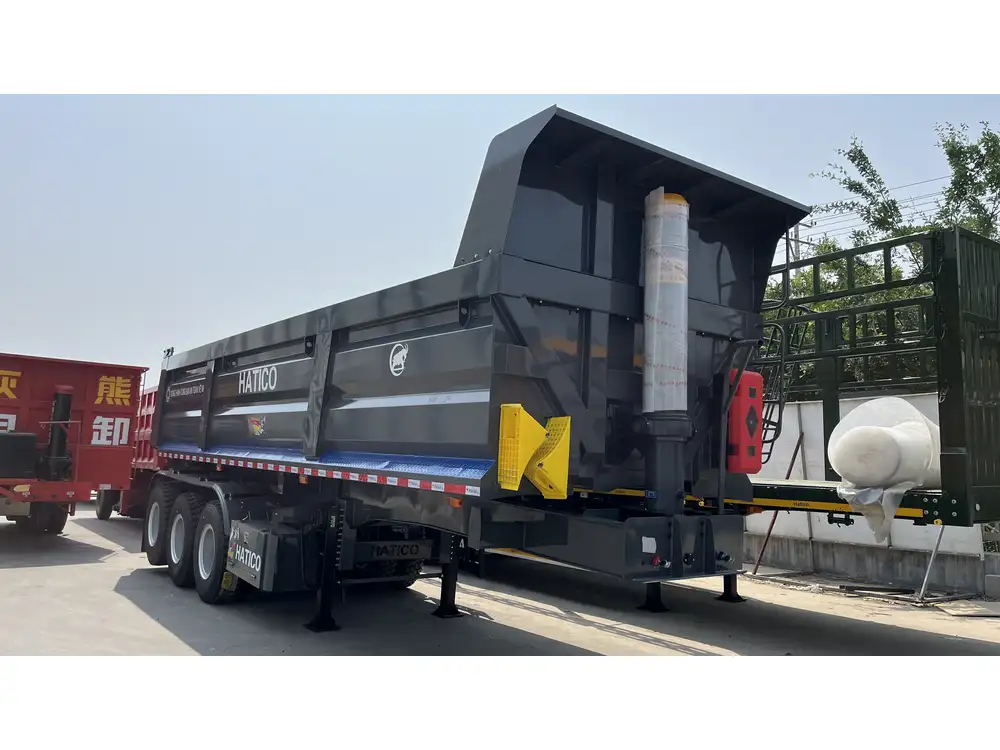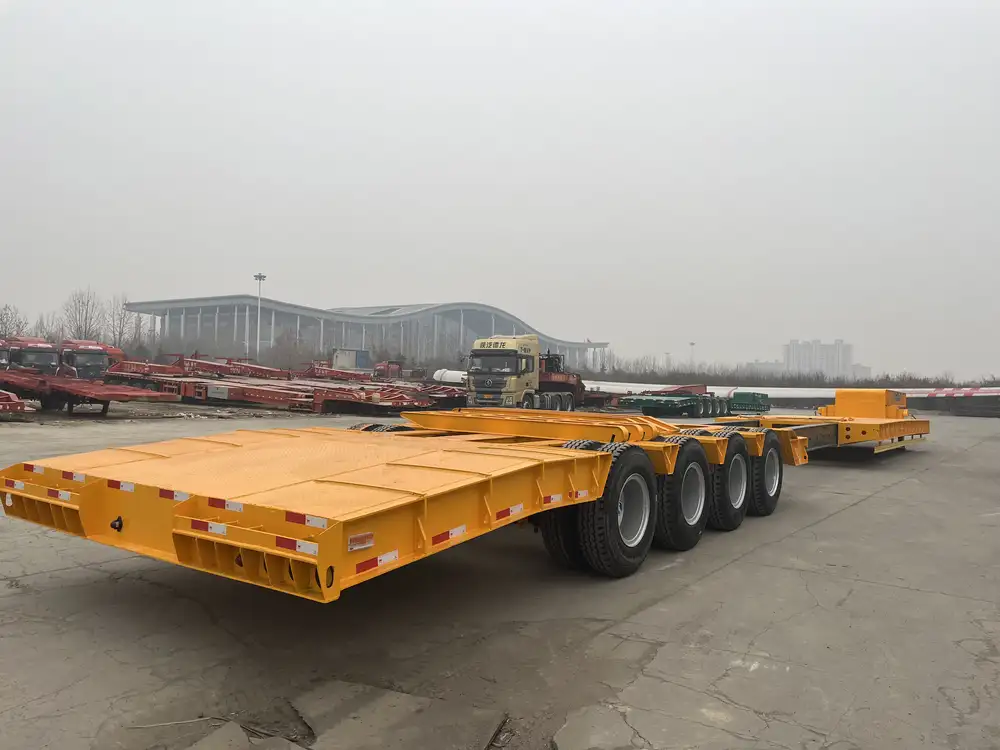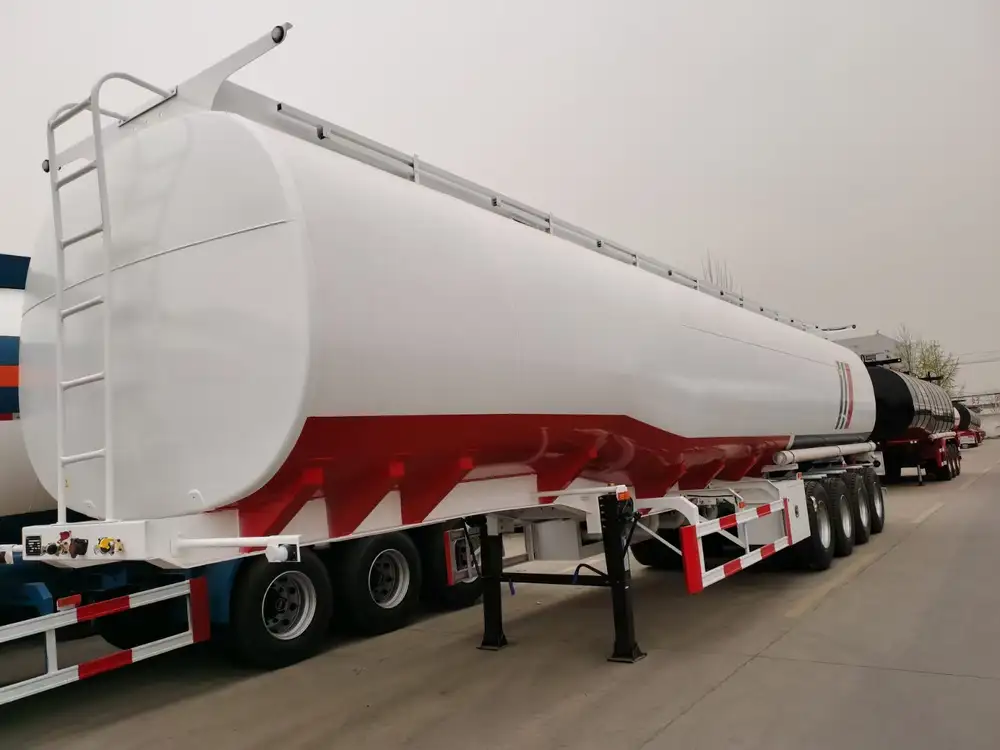In the vast realm of hauling and transportation, dump trailers stand out as an indispensable tool for businesses and contractors alike. The right choice can significantly impact efficiency, safety, and overall productivity. So, what exactly should we consider when determining which dump trailer is best for our needs? This guide aims to dissect the myriad of options available, helping you make an informed decision tailored to your specific requirements.
Understanding Dump Trailers: Definition and Types
What is a Dump Trailer?
A dump trailer is a specialized vehicle designed for transporting loose materials, like dirt, gravel, and debris. Unlike standard trailers, dump trailers feature a hydraulic lift system that raises one end of the trailer bed, allowing for a swift and effective unloading process.

Types of Dump Trailers
To streamline your choice, it’s essential to understand the different types of dump trailers available in the market:
| Type | Description | Ideal Use Cases |
|---|---|---|
| Standard Dump Trailer | Designed with a straight dump bed for general use. | Construction sites, landscaping projects. |
| Gooseneck Dump Trailer | Longer trailers with a gooseneck hitch for better stability. | Heavy-duty hauling, agricultural use. |
| Tilt Trailers | Features a tilting mechanism for easy loading and unloading. | Garden centers, small equipment hauling. |
| Enclosed Dump Trailer | Provides protection against the elements and theft. | Transporting valuable or sensitive loads. |
Key Factors in Choosing a Dump Trailer
1. Payload Capacity
When selecting a dump trailer, one of the foremost considerations should be the payload capacity. This dictates how much weight the trailer can safely accommodate, which directly correlates to its intended use.
- Light-Duty Trailers: Generally have a capacity of around 6,000 lbs, suitable for mulch, small construction materials, or yard waste.
- Medium-Duty Trailers: These typically support loads between 6,000 and 10,000 lbs, suitable for landscaping and small construction projects.
- Heavy-Duty Trailers: With capacities exceeding 10,000 lbs, these are ideal for large-scale operations like commercial construction or mining.

2. Construction Material
The durability and longevity of a dump trailer are heavily influenced by its construction material. Common materials include:
- Steel: Offers high durability and strength, ideal for heavy-duty applications. However, it is prone to rust if not properly maintained.
- Aluminum: Lightweight and resistant to rust, perfect for mid to light-duty applications. The trade-off is a lower overall strength compared to steel.
- Composite Materials: These combine elements of both steel and aluminum, providing a balanced option in terms of weight and durability.
3. Size and Dimensions
Dump trailers come in various sizes; however, the dimensions should correlate with your specific projects. Consider the following:
- Length: Common lengths range from 6 to 16 feet. Longer trailers provide more volume but may be cumbersome in tight spaces.
- Width: Typically between 6 and 8 feet. The wider the trailer, the more load it can accommodate.
- Height: The height of the sidewalls can significantly affect how much load you can transport. Taller sidewalls can hold more volume but may complicate loading and unloading.
4. Hydraulic System
The efficiency of the hydraulic lift system is crucial for seamless operation. Investigate these aspects:
- Pump Options: Electric and manual pumps are common; electric pumps offer ease of use, while manual pumps are better for reliability in remote areas.
- Lift Capacity: Check if the hydraulic system can efficiently lift the intended payload without straining the trailer’s architecture.

5. Towing Compatibility
Make sure to evaluate the towing capacity of your vehicle in relation to the dump trailer you intend to purchase. This encompasses:
- Hitch Type: Ensure compatibility with your vehicle’s hitching system—ball hitches versus gooseneck hitches dictate different trailer behaviors.
- Braking System: Some states require additional braking systems for trailers exceeding a specific weight. Evaluate the regulations in your area.
Popular Dump Trailer Brands and Comparisons
Choosing a reputable manufacturer can make an enormous difference in your experience with dump trailers. Below is a comparison of some renowned brands within the market:
| Brand | Strengths | Price Range | Warranty |
|---|---|---|---|
| Big Tex | High payload capacity, durable materials. | $5,000 – $12,000 | 1 year limited |
| PJ Trailers | Wide variety of sizes and options available. | $4,000 – $11,000 | 2 years limited |
| Load Trail | Excellent customer service, strong build quality. | $4,500 – $10,500 | 1 year limited |
| Diamond C | Innovative design features, withstands rugged use. | $6,000 – $13,000 | 5 years structural warranty |
Cost Considerations and Value vs. Price
When contemplating the purchase of a dump trailer, the price may be a critical factor, but evaluating value rather than just the cost is equally essential. Consider:
- Initial Cost vs. Long-term Investment: A cheaper trailer may save you money upfront, but if it requires frequent repairs or fails to perform, you may incur more expenses in the long run.
- Resale Value: Certain brands hold their value better than others, making them a more prudent investment down the line.

User Questions and Common Concerns
After thorough consideration of all the technical details, potential buyers often have additional questions or concerns. Here, we address these to alleviate uncertainties.
What is the Typical Lifespan of a Dump Trailer?
A well-maintained dump trailer can last anywhere from 10 to 20 years, depending heavily on how frequently it is used and the conditions it is subjected to.
What Maintenance is Required for Dump Trailers?
Regular maintenance includes:
- Checking the hydraulic system for leaks and ensuring proper fluid levels.
- Inspecting tires for tread wear and maintaining the correct air pressure.
- Cleaning the trailer after use to avoid rust formation from accumulated materials.

Are Dump Trailers Covered by Insurance?
Yes, dump trailers can generally be insured under a commercial vehicle policy. Ensure you discuss specific requirements and liability coverage options with your insurance agent.
Can I Customize My Dump Trailer?
Many manufacturers offer customization options, allowing you to add features like extended sidewalls, additional hydraulic functions, or specialized paint finishes that may enhance performance or aesthetic appeal.
Conclusion: Finding the Right Dump Trailer for Your Needs
Identifying which dump trailer is best involves detailed scrutiny of numerous factors, including payload capacity, construction material, size, and hydraulic systems. By examining brand options, cost versus value, and addressing common concerns, we can confidently guide you to a choice that aligns with your operational needs and enhances productivity.
As the hauling industry grows increasingly competitive, staying informed and making smart choices regarding your equipment is vital. Dump trailers play an essential role in this regard, making it imperative to select the best option tailored precisely for your unique demands and aspirations.
This comprehensive guide serves as a foundational resource empowering you to embark on your quest to find the perfect dump trailer. With careful consideration and informed choices, you are well on your way to optimizing your hauling operations and ensuring countless successful projects in the future.



